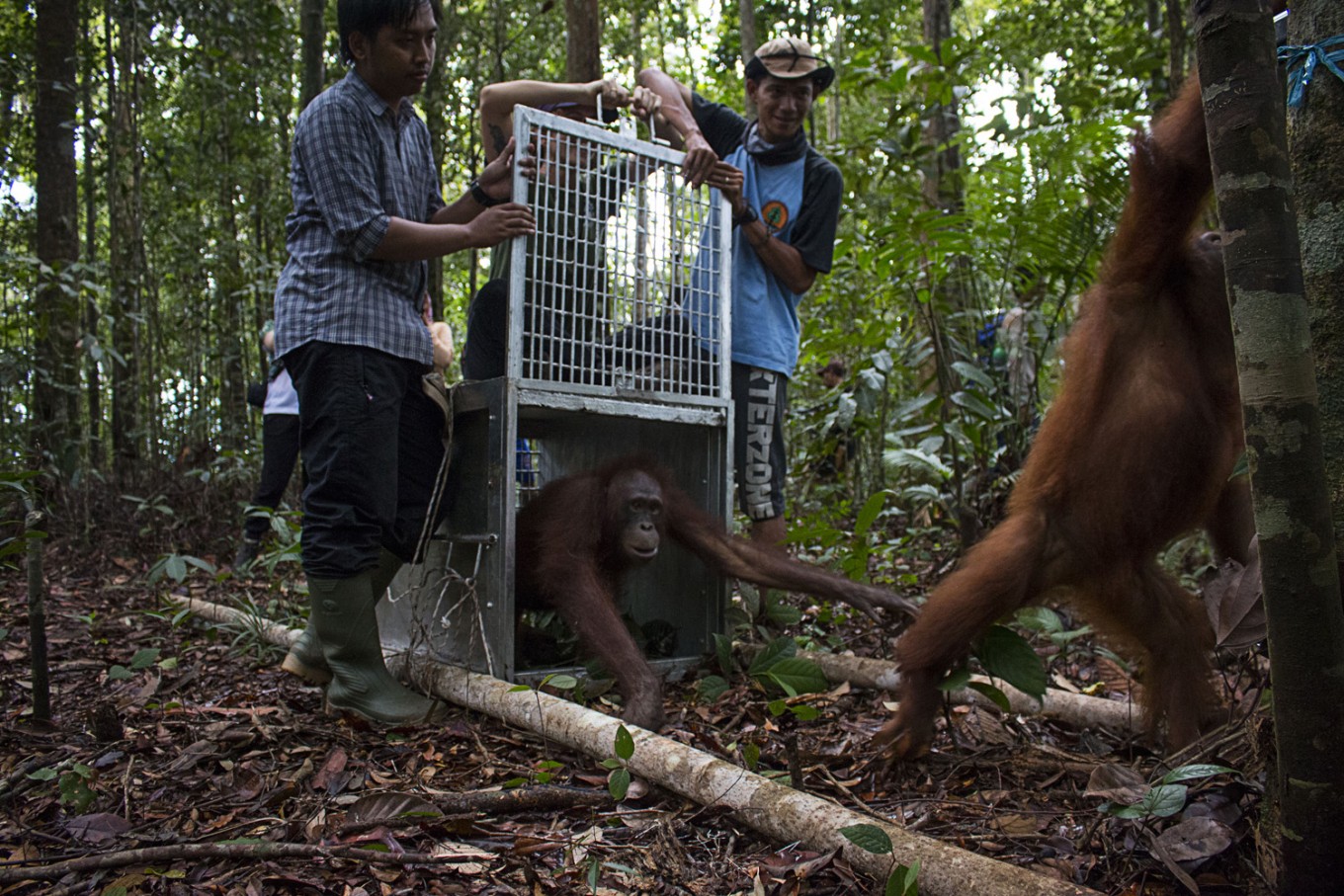Popular Reads
Top Results
Can't find what you're looking for?
View all search resultsPopular Reads
Top Results
Can't find what you're looking for?
View all search results3 orangutans returned to natural habitat in W.Kalimantan
Change text size
Gift Premium Articles
to Anyone
A
n orangutan rehabilitation center in Ketapang, West Kalimantan, has released three orangutans into their natural habitat at the Bukit Baka Bukit Raya National Park, which is part of the Heart of Borneo, a conservation area located on the border of West and Central Kalimantan.
Conservation group Yayasan Inisiasi Alam Rehabilitasi Indonesia (YIARI) program director Karmele Llano Sanchez said she could not imagine that there would still be a bright future for orangutan populations in Indonesia if their natural habitat continued to disappear at a rapid pace.
“Orangutans are threatened with forest clearing, land burning, wildlife hunting and the illegal pet trade. Only if people are more concerned about orangutans, will they be safe, although it’s a bit too late now,” said Karmele.
The YIARI release orangutans into their natural habitats in stages. On June 28, Sabtu, an adult orangutan aged around 25 years, was released into its indigenous habitat. Sabtu was rescued from a plantation belonging to local people in Ketapang regency, in March. It was thought the orangutan fled to the human settlement following the burning in its habitat. On June 29, YIARI released two orangutans, namely Butan and Marsela, it had been rehabilitating since 2011 and 2012 respectively. The orangutans were rescued when they were around 2-3 years old. They were pushed out by the massive expansion of oil palm plantations in Ketapang.
“In their habitat, baby orangutans live with their mothers from when they are born until they are around 7-8 years old. If a baby orangutan is found alone, rest assured his or her mother has died,” YIARI program manager Gail Campbell-Smith said.
After the release, a YIARI monitoring team, supported by local people from villages near the national park, will still follow the orangutans using a radio-tracking facility for one or two years. They will record the orangutans’ activities and behavior, making sure that they can survive.
The YIARI is currently rehabilitating 100 orangutans and it is feared the number will continue to increase along with rapid habitat losses caused by ongoing forest clearing for plantation expansion. (ebf)










